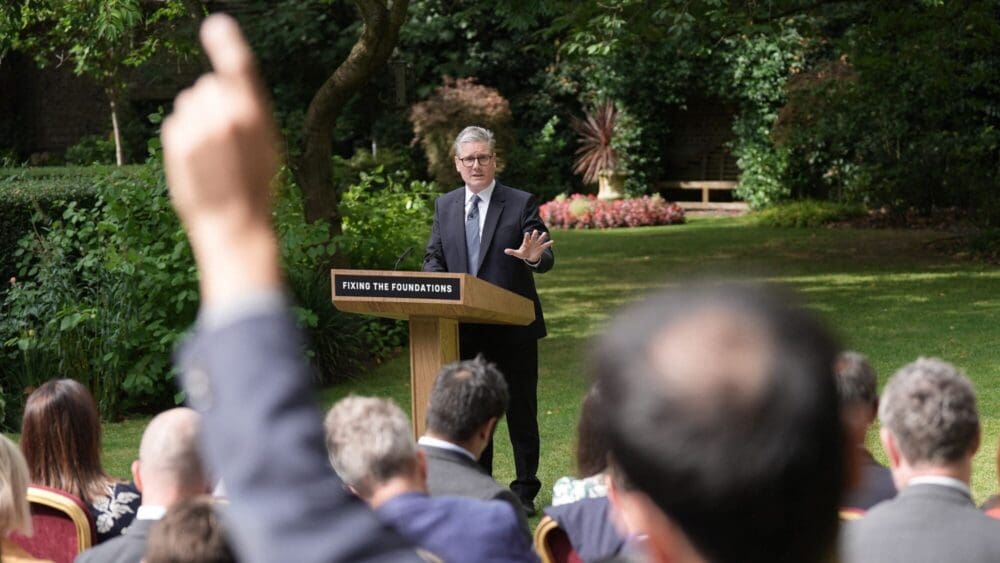
Britain’s Prime Minister Sir Keir Starmer speaks during a press conference in the Rose Garden at 10 Downing Street
Stefan Rousseau / POOL / AFP
Britain’s Labour prime minister Sir Keir Starmer delivered a speech in Downing Street on Tuesday morning, promising to “root out 14 years of rot” under the Conservatives and asking to be “judged by our actions and not by our words.”
Yet despite pledging to clean up politics, Starmer’s government is already—after just 50 days in office—immersed in a growing cronyism scandal.
Loyal Labour figures—who have been involved in donating to party officials—have been appointed to senior roles in the civil service, which is supposed to be impartial. And the prime minister’s biggest personal donor was given an extraordinarily rare security pass for Number 10 Downing Street.
Political insider blog Guido Fawkes had fun with the news, comparing these actions with Starmer’s recent words, such as his insistence that under him, there will be “no more VIP fast lanes” and “no more kickbacks for colleagues.”
Well that didn't last long… pic.twitter.com/9odbcH4e4p
— Guido Fawkes (@GuidoFawkes) August 21, 2024
In his speech today, on August 27th, the PM said, “This government won’t always be perfect.”
But I promise you this: you [the public] will always be at the heart of it, in the forefront of our minds [and] at the centre of everything we do.
It is tricky to see how the government could square these words with the recent action of shuffling a Starmerite think tank campaigner—a constitutional reform expert, no less—into another top civil service role.
Henry Newman, a former Tory special adviser, has written a good sum-up of the cases of Labour cronyism that have come to light so far.
Keir Starmer has written in the Times about his promise to lead a new Government of service
— Henry Newman (@HenryNewman) August 27, 2024
As @MelanieLatest writes the hypocrisy is “stunning”
Let’s have a quick recap of the current cronyism mess that his Government is in …
🧵
The Conservatives, wrote Starmer in a pre-speech piece in the Times, “broke something even more fragile and more precious [than COVID lockdown rules]: the trust of the British people in politics and their politicians.”
Melanie Phillips, a columnist for the same paper, described the hypocrisy in this as “stunning.”
“Almost every day recently has brought fresh revelations of Labour government cronyism and sleaze,” she wrote.
This constant drubbing will not help Starmer’s already falling popularity. According to Ipsos, the PM’s net approval has slumped to zero from plus seven just after the election at the beginning of July.
The early release of violent criminals from prison is likely to have had much to do with this drop. So too will have Starmer’s handling of the recent riots. In his speech today, the prime minister said much about this unrest, but nothing about the Southport stabbing—leaving three young girls dead and others injured—which triggered it.
It also emerged towards the end of last week that Labour Party membership has fallen to its lowest figure in a decade under Starmer’s watch.
“Some things,” said Starmer today, “will have to be done differently.” But it appears that others, including the way Britons view their ruling elites, will remain the same.
